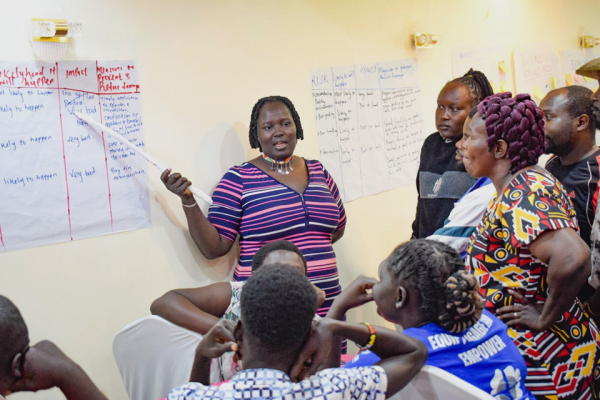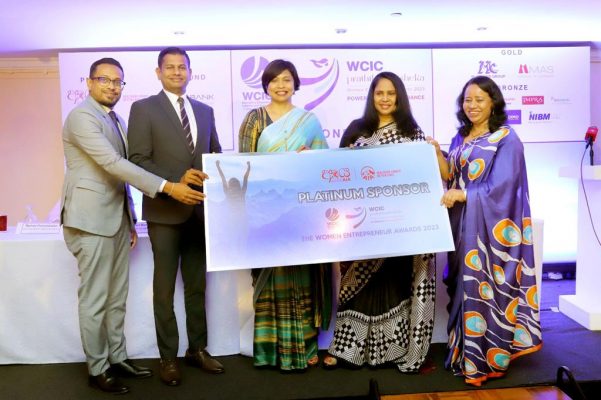Learning and innovation have played a crucial part in CIPE’s work over its 40-year history. Much of our efforts have been in partnership with business organizations in 138 countries, mostly local and regional business associations or chambers of commerce. Our work with these critically important civic organizations is, in large part, how we live out our core principles and values: respect, integrity, and excellence. Over recent months, CIPE hosted an executive seminar series sharing much of what we’ve learned together and new approaches for the future. This involved hundreds of participants from around the world.
The seminar series covered five topics that are the foundation for successful and sustainable organizations:

- Leadership – Effective leadership is crucial for the success of a nonprofit organization. Good leaders can inspire their team, make sound decisions, and create a positive work culture. This requires a partnership between the board in governing the organization, and the staff in managing it.
- Strategic Planning – The organization must be built to advance a clear mission and vision in order to attract and retain supporters who share its values. A well-conceived strategic plan (and planning process) provides an essential roadmap to success.
- Stakeholder Engagement – Having engaged and committed stakeholders, including staff, volunteers, and supporters, is critical to success. Expanding the organization’s network of resources and building a strong sense of community relies on effective outreach and engagement strategies.
- Diverse Revenues – A diversified mix of dues and other revenue sources is needed to run a business membership organization, and certainly to weather economic downturns and changes in donor funding priorities. An organization must demonstrate the value of membership through impactful programs, benefits, and services.
- Communications and Marketing – Effective communications and marketing raise awareness about the organization’s cause and build support. Advocacy and influence campaigns rely on effective communications, as does selling the value of association membership.
Top Practices from Chambers and Associations

Following the seminar series, organizations had an opportunity to participate in a pitch competition where they presented their own leading practices to a panel of expert judges. We received a strong response and heard inspiring examples of how chambers and associations are stepping up to meet the needs of their communities. New ways of communicating information to members, services to support sustainable small-scale cross-border trade that drives economic growth, and partnerships that are expanding access to much-needed financial services are among the many compelling initiatives that were presented.
The top finishers were:
- Kenya National Chamber of Commerce and Industry (KNCCI), Turkana Chapter — public-private dialogue on business registration, supporting the integration of refugee-owned businesses into the formal economy.
- Albania Energy Association — comprehensive stakeholder engagement plan.
- Women’s Chamber of Commerce and Industry, Sri Lanka (WCIC) — integrated strategic framework.
- Lagos Chamber of Commerce and Industry, Nigeria — entrepreneurship mentoring program.
Several criteria set these initiatives apart as models of excellence:
Innovation. Novel approaches to advancing the association’s sustainability that meet market demand.
Impact. Advancing the mission of the organization and delivering return on investment for members, in line with the organization’s social objectives.
Sustainability. Initiatives that can be continued beyond the initial commitment of resources based on the additional support and resources they generate.
Replicability. Initiatives that can be repeated and scaled within the organization and provide a viable model for other country contexts.
Our sponsors provided valuable prizes which were awarded to the winners. We greatly appreciate their role in making this event series possible: Toki Mabogunje & Co., the International Chamber of Commerce (ICC) Academy, the U.S. Chamber of Commerce Institute for Organization Management, Association Options, and our technology partner GlueUp.
As we reflect on CIPE’s 40 years of service to chambers and associations worldwide, we are inspired by the work and accomplishments of our partners. And we look forward to working with a growing global network of organizations to forge solutions to the rising challenges of an increasingly complex and interconnected global economy in the decades to come. We believe, as strongly as ever, in the power of chambers and associations to realize the vision that guides our work at CIPE: a world where democracy delivers the freedom and opportunity for all to prosper.
Published Date: December 22, 2023
